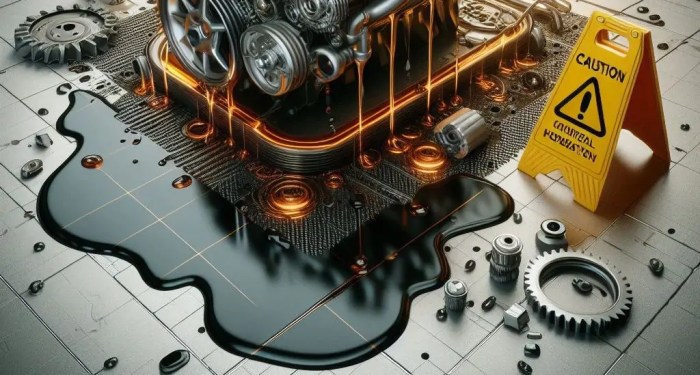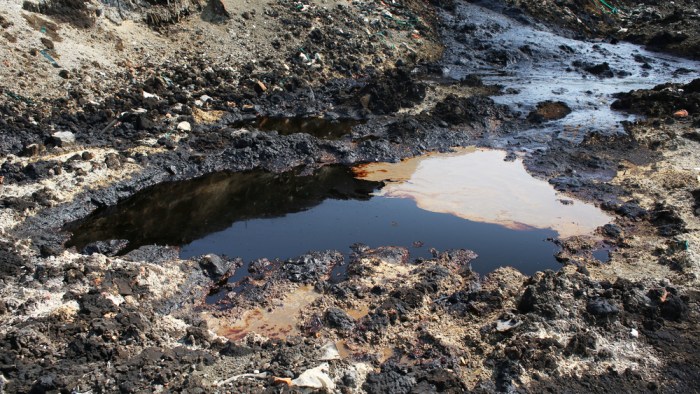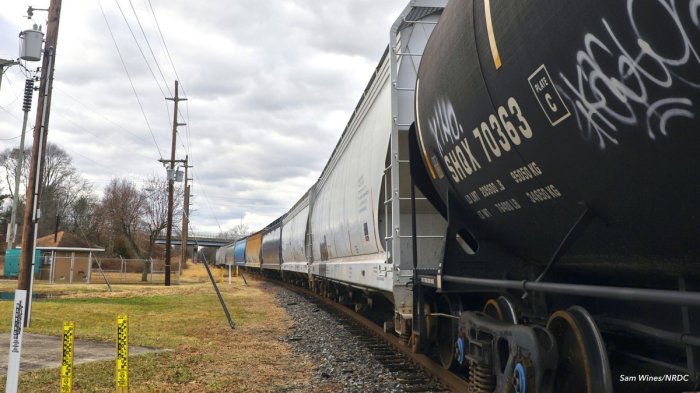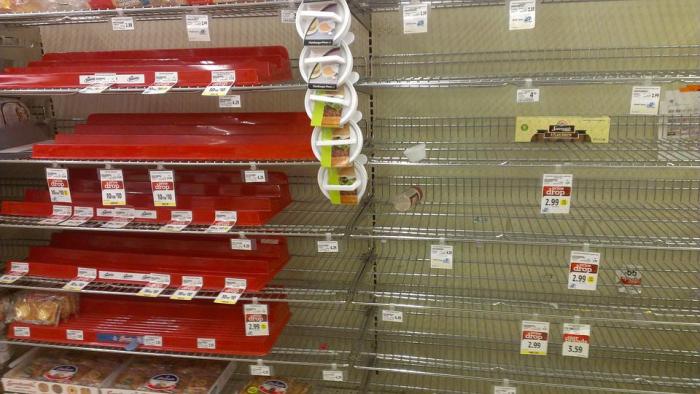Why are fuel leaks a problem aceable? This question delves into the detrimental consequences of fuel leaks, exploring their environmental impact, health hazards, fire and explosion risks, economic implications, infrastructure damage, and prevention measures. Understanding the severity of fuel leaks is crucial for mitigating their risks and safeguarding our environment, health, and economy.
Fuel leaks pose a significant threat to our planet, releasing harmful pollutants into the air and water. These pollutants can have severe impacts on ecosystems, affecting biodiversity and natural resources. Moreover, fuel leaks can cause respiratory problems and skin irritation, with chronic exposure leading to potential long-term health effects.
Environmental Impact

Fuel leaks can have a devastating impact on the environment, affecting both air and water quality. They release a range of pollutants that can harm ecosystems, biodiversity, and natural resources.
When fuel leaks into the environment, it can contaminate soil and groundwater, leading to soil erosion and the degradation of water sources. The pollutants released during fuel leaks can include volatile organic compounds (VOCs), polycyclic aromatic hydrocarbons (PAHs), and benzene, which are all known to have adverse effects on human health and the environment.
Air Pollution
Fuel leaks can release a range of VOCs into the atmosphere, including benzene, toluene, ethylbenzene, and xylene (BTEX). These compounds can contribute to the formation of ground-level ozone, a harmful air pollutant that can cause respiratory problems, cardiovascular disease, and damage to vegetation.
Water Pollution
Fuel leaks can contaminate surface water and groundwater with a range of pollutants, including petroleum hydrocarbons, BTEX, and heavy metals. These pollutants can harm aquatic life, disrupt ecosystems, and make water unsafe for drinking or bathing.
Long-Term Consequences
The long-term consequences of fuel leaks can be significant. Contaminated soil and groundwater can take years or even decades to clean up, and the damage to ecosystems can be irreversible. Fuel leaks can also contribute to climate change by releasing greenhouse gases into the atmosphere.
Health Hazards

Fuel leaks pose significant health risks to individuals exposed to the leaked fuel. These risks range from immediate, acute effects to long-term, chronic health issues.
Respiratory Problems
Exposure to fuel vapors and aerosols can lead to a range of respiratory problems, including:
- Irritation of the airways, causing coughing, wheezing, and shortness of breath
- Inflammation of the lungs, leading to bronchitis and pneumonia
- In severe cases, exposure to high concentrations of fuel vapors can result in respiratory failure
Skin Irritation, Why are fuel leaks a problem aceable
Direct contact with liquid fuel or fuel vapors can cause skin irritation, including:
- Redness and inflammation
- Itching and burning
- Blisters and rashes
Chronic Health Effects
Long-term exposure to fuel leaks can have serious chronic health effects, including:
- Increased risk of cancer, particularly leukemia and lung cancer
- Neurological damage, affecting memory, coordination, and cognitive function
- Reproductive problems, including infertility and birth defects
Fire and Explosion Risks

Fuel leaks pose significant fire and explosion hazards due to the highly flammable nature of fuels. The presence of ignition sources, such as electrical sparks, open flames, or hot surfaces, can trigger a chain reaction leading to catastrophic events.
Historical fuel leak-related fires and explosions have resulted in severe consequences. For instance, the 2010 San Bruno pipeline explosion in California, caused by a gas leak, killed eight people and destroyed 38 homes. Similarly, the 1989 Exxon Valdez oil spill in Alaska led to a massive fire that burned for several days, causing extensive environmental damage.
Mitigation Measures
To mitigate the risks of fire and explosion, various measures can be implemented:
- Leak Detection and Monitoring:Installing leak detection systems and regularly monitoring fuel storage and transportation facilities can help identify leaks promptly.
- Ignition Source Control:Eliminating potential ignition sources, such as open flames, electrical sparks, and hot surfaces, near fuel storage areas is crucial.
- Emergency Response Plans:Developing and implementing comprehensive emergency response plans that Artikel actions to be taken in the event of a leak or fire can minimize the impact.
- Fire Suppression Systems:Installing fire suppression systems, such as sprinklers, foam, or dry chemicals, can extinguish fires effectively and prevent their spread.
- Training and Education:Providing proper training and education to personnel involved in fuel handling and storage operations can enhance their awareness of the risks and appropriate response measures.
Economic Consequences
Fuel leaks pose significant economic challenges due to the substantial costs associated with cleanup, property damage, and business disruptions.
Industries heavily reliant on fuel transportation and storage, such as transportation, manufacturing, and energy production, are particularly vulnerable to these economic impacts.
Cleanup Expenses
- Fuel leaks require extensive cleanup efforts involving containment, removal, and remediation of contaminated soil and water.
- The costs of cleanup can vary significantly depending on the severity of the leak, the type of fuel involved, and the location.
- For example, the cleanup of a major fuel leak from a pipeline can cost millions of dollars and take months or even years to complete.
Property Damage
- Fuel leaks can cause extensive damage to property, including buildings, infrastructure, and natural resources.
- Leaked fuel can seep into soil and groundwater, contaminating drinking water sources and damaging ecosystems.
- In cases where fuel leaks lead to fires or explosions, the property damage can be catastrophic.
Business Disruptions
- Fuel leaks can disrupt business operations, leading to lost productivity, revenue, and reputational damage.
- Businesses that rely on fuel for their operations may be forced to shut down or reduce production while cleanup efforts are underway.
- The long-term economic consequences of fuel leaks can be substantial, affecting local and regional economies.
Infrastructure Damage: Why Are Fuel Leaks A Problem Aceable

Fuel leaks can cause significant damage to infrastructure, including roads, bridges, and pipelines. The chemicals in fuel can corrode and weaken these structures, leading to cracks, leaks, and even collapse. For example, fuel leaks have been known to cause asphalt roads to buckle and crack, creating hazardous driving conditions.
Similarly, fuel leaks can damage bridges by corroding the steel supports and concrete foundations. Pipelines are also susceptible to damage from fuel leaks, as the chemicals can weaken the metal and cause leaks or ruptures.
Long-Term Consequences
The long-term consequences of fuel leaks on infrastructure can be severe. Damaged roads and bridges can lead to traffic congestion, delays, and increased maintenance costs. In some cases, damaged infrastructure may need to be replaced, which can be a costly and time-consuming process.
Fuel leaks can also contaminate soil and groundwater, which can pose a health risk to humans and wildlife.
Prevention and Mitigation

Preventing and mitigating fuel leaks require a comprehensive approach involving various methods, regular inspections, and adherence to regulations.
Leak Detection Systems
Leak detection systems play a crucial role in identifying and alerting operators to potential leaks early on. These systems use sensors, monitors, and automated surveillance to detect changes in pressure, flow rates, or other parameters that indicate a leak.
Pipeline Maintenance
Regular maintenance of pipelines is essential for preventing leaks. Inspections, repairs, and upgrades help ensure the integrity of pipelines and minimize the risk of corrosion, damage, or other factors that could lead to leaks.
Regular Inspections and Monitoring
Regular inspections and monitoring of pipelines and storage facilities are vital for identifying potential leaks early on. These inspections can involve visual checks, ultrasonic testing, and other non-destructive testing methods to detect anomalies or weaknesses that could lead to leaks.
Regulations and Standards
Regulations and standards establish guidelines and requirements for the design, construction, operation, and maintenance of fuel storage and transportation systems. Adhering to these regulations helps ensure that appropriate measures are in place to prevent and mitigate fuel leaks.
Question & Answer Hub
What are the primary environmental impacts of fuel leaks?
Fuel leaks release harmful pollutants into the air and water, affecting air quality, contaminating water sources, and disrupting ecosystems.
How can fuel leaks affect human health?
Exposure to fuel leaks can cause respiratory problems, skin irritation, and long-term health effects due to the presence of harmful fuel components.
What are the economic consequences of fuel leaks?
Fuel leaks can lead to costly cleanup expenses, property damage, and business disruptions, particularly in industries heavily reliant on fuel.